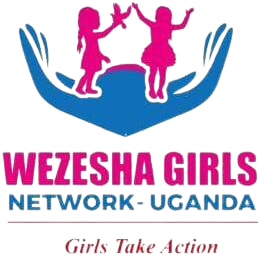Nearly 1 in 5 teens in Uganda struggle to afford period products each month. No one should have to choose between basic hygiene and other necessities. It’s time for everyone to get involved to end period poverty for good.
Menstruation has held thousands of girls back, limiting them from realising their full potential and this has a significant impact on our nation. We have witnessed families forcing young girls into marriage just because she has seen first period. This is a serious problem that needs urgent attention.
Child marriage and period poverty are two interconnected issues that have been a longstanding concern in our country, with serious effects on the physical, emotional, and economic well-being of young girls both in rural and urban areas.
Child marriage has been a prevalent practice in many parts of Uganda, driven by cultural, social, and economic factors. According to UNICEF, 34% of women aged 20-24 were married before the age of 18.
For some girls, their periods mean the end of their education and the beginning of a lifetime of domestic work, pregnancy and even, violence. A recent report from the Ministry of Education and Sports detailing the status of its implementation of menstrual health management in the country indicates that about 23% of Ugandan girls in the age group of 12-18 drop out of school when they begin menstruation. This is worrying and needs urgent attention.
Period poverty exacerbates the vulnerability of girls to child marriage. When girls do not have access to menstrual products, they are often forced to stay home while learning goes on at schools and this later affects their general performance. Additionally, the lack of proper sanitation facilities leads to health issues and infections, further increasing their dependence on others for care and support.
Its also important to note that poverty is the primary driver of both period poverty and child marriage. Families facing financial hardships may prioritize immediate economic benefits, such as dowries, over the long-term benefits of educating their daughters. It is often reported that parents marry off their daughters when they start menstruating to avoid the cost of providing sanitary products to their daughters.
Its urgent that we prioritize community sensitisation programs and equip parents and care givers with information on the dangers that come with marrying off their daughters early and the benefits of keeping their girls in school until they complete their education. Information is power.
Wezesha Girls Network through its members has reached out to a number of communities to carry out sensitisation programs for parents and local leaders. Our initiatives have reached thousands of girls, ensuring they have the necessary resources to manage their periods safely and hygienically. Our members Youth Chaperon Uganda are teaching girls how to make their own reusable pads, promoting self-sufficiency and sustainability, health and hygiene practices.
With more support we can multiply our impact. Join us to make this possible.





No comment